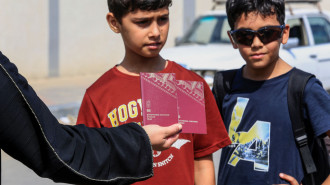Saudi Arabia's 'Davos in the Desert' summit hopes to draw investment for MbS's Vision 2030 plans
Saudi Arabia is hosting another major investment conference as part of its Vision 2030 ambitions, amid a scaling back of megaprojects during a period of sustained low oil prices.
The Future Investment Initiative (FII), now in its eighth edition, will be held in Riyadh from Monday to Wednesday and will likely draw thousands of investors, business figures, and bankers despite the tough economic environment the region now faces.
The form, popularly known as 'Davos in the Desert', forms the financial cornerstone of Crown Prince Mohammed bin Salman's diversification plans, which he hopes will transform the kingdom from being almost completely reliant on oil and gas receipts to being the main driver for economic growth and entertainment in the region.
Saudi Arabia requires huge foreign and domestic investment to see multi-billion dollar developments which it has loudly proclaimed come to life. These include The Line in NEOM, The Mukaab building in Riyadh, and the latest megaproject announced - Sindalah, an island resort off the kingdom's west coast.
Vast wealth can be earned from the massive Saudi construction drive, which is seeing new cities being built and existing ones reimagined, with The Line itself expected to cost upwards of $1 trillion with $3.2 trillion expected to be spent on the Vision 2030 developments in total.
However, rising costs and slower progress than anticipated for these projects, could see these figures rise dramatically.
Deals worth more than $28 billion are expected to be struck during the three-day FII event, but there could be changes to previous arrangements with the Public Investment Fund (PIF), the main driver for investment in the Vision 2030 projects, setting new parameters for foreign investment.
Due to low oil prices, the PIF is reportedly prioritising domestic companies over foreign ones, marking another change from previous forums which sought an influx of foreign firms.
Foreign investors will also be likely mindful of a drop in oil prices, which have already impacted Saudi Arabia's Vision 2030 plans including a massive downscale in The Line - a linear city originally planned to be 170km long but reduced to 2.4 km, for now.
Riyadh is expected to decrease spending by billions amid expectations for the Saudi budget deficit to widen to 3 percent of GDP in 2024.
It comes amid the backdrop of the war on Gaza, now in its second year, with more than 43,000 Palestinians killed, and a new offensive in Lebanon leading to further instability and tension, particularly with Hezbollah's regional ally, Iran.
Foreign airlines have cut routes to the region due to the tensions, amid fears of an escalation in a tit-for-tat shootout between Iran and Israel, which comes amid a Saudi push for more tourism and the launch of a new airline for the kingdom, Riyadh Air.
![neom the line [youtube] neom the line [youtube]](/sites/default/files/styles/large_16_9/public/media/images/B096AD62-3898-49FE-80C8-942A810FD40C.jpg?h=d1cb525d&itok=aFEoklGR)



 Follow the Middle East's top stories in English at The New Arab on Google News
Follow the Middle East's top stories in English at The New Arab on Google News
![People gathered around the rubble of destroyed houses to search for survivors [Getty]](/sites/default/files/styles/image_330x185/public/2024-11/GettyImages-2184733820.jpg?h=199d8c1f&itok=NiM1LO2f)

